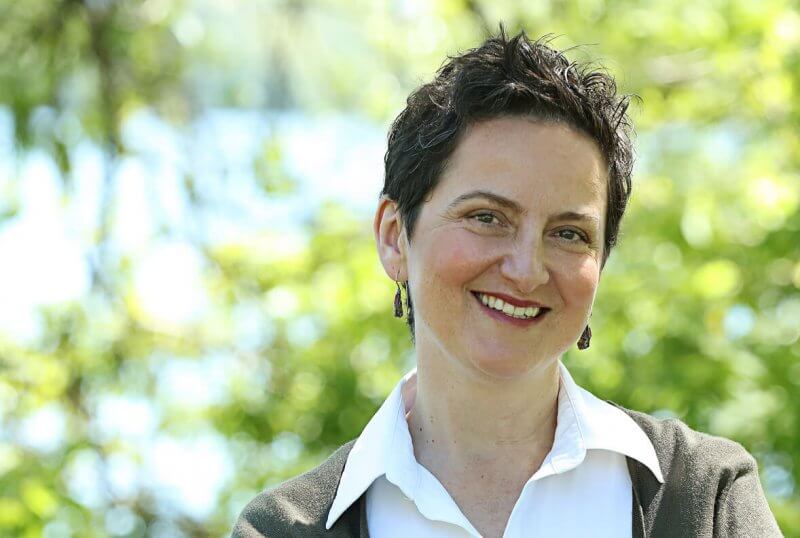It may sound overly sensational to say that volunteering your time to help others can mean the difference between life and death.

But for Dr. Djenana Jalovcic (EdD 2018), she bore witness to this first-hand in the 1990s when her home city of Sarajevo was under siege for a staggering 1,425 days, with citizens exposed to relentless shelling and sniping. But while war brings out the worst in some people, it brings out the best in others.
"In face of death, destruction, injuries and suffering the citizens of Sarajevo were fearlessly helping each other, volunteering endless hours to keep the life moving, to keep the life winning in the city sentenced to death," she said.
She herself got involved in relief efforts within the besieged city, working with Doctors Without Borders Holland, helping distribute medicine and medical supplies.
Jalovcic's experiences in Sarajevo, and subsequent experiences living as a refugee in Italy before coming to Canada, helped to inspire not only her desire to give back to her community, but also helped inform her professional and academic career.
She took on a job at Queen's University in Kingston, working on a project of war victim rehabilitation in Bosnia and Herzegovina, and stayed with the university for 20 years. She went on to serve as Director at the International Centre for the Advanced of Community Based Rehabilitation, working on capacity-building projects with persons with disabilities-among many other initiatives-in more than 15 countries.
"The unmet needs that I saw around the world made me go back to school to pursue graduate studies first in public administration, then rehabilitation science and finally in education. I needed to know more to be able to help more," she said.
Jalovcic said she chose Athabasca University, a world leader in online learning, because she was interested in exploring the use of technology to reach people who otherwise wouldn't be able to pursue higher education.
Through her graduate work, she explored the transformative power of online education for students with disabilities, and also documented those students' views about the barriers they face and how to remove them.
"In my field of disability and rehabilitation, online education offers unprecedented opportunities for disability and rehabilitation practitioners to pursue education," she said.
Jalovcic said she appreciated studying with the global leaders in online education at AU's Centre for Distance Education, and she brought that experience to her current role as an associate professor at Western Norway University of Applied Sciences, working to develop the university's first online master's program in health aging and rehabilitation.
And while her professional work is in and of itself a gamechanger for learners with disabilities, she has brought that same passion to her volunteer work as well-on both international and local scales. These days, she divides her time between the Centre for the Rehabilitation of the Paralysed (CRP) in Bangladesh, the Canadian Society for International Health (CSIH), Accessibility for All, and the Learning Disabilities Association of Kingston (LDAK).
For the past five years, she has spent a month out of each year working with the CRP, which runs the only rehabilitation hospital for people with spinal cord injuries in Bangladesh, supporting inclusion of people with disabilities in mainstream society, and promoting an environment in which they have equal access to all services.
Closer to home Jalovcic works with CSIH, an organization that's close to her heart as it brings together her passions of global health and mobilizing Canadians to take action to improve health and health equity globally.
In Vaughan, Ont., she works with Accessibility for All, an organization working to identify and meet the needs of marginalized people within mainstream rights movements-acknowledging that, for example, Women, youth, Indigenous and racialized persons face multiple barriers and discrimination.
And in her home community of Kingston, Ont., she serves as president of LDAK. Through this organization, she helps to plan and implement activities that support the estimated 10 per cent of Ontarians who experience a learning disability.
"It is a great honour to be among the group of outstanding AU alumni whose work has been recognized with a Volunteer Service Award," Jalovcic said. "It makes it even more important because it comes from the university that values openness, accessibility, diversity, and inclusion."